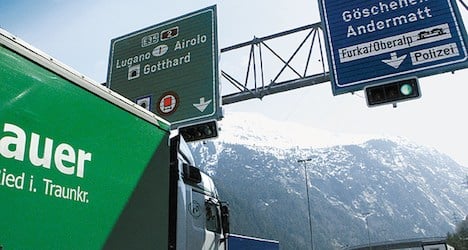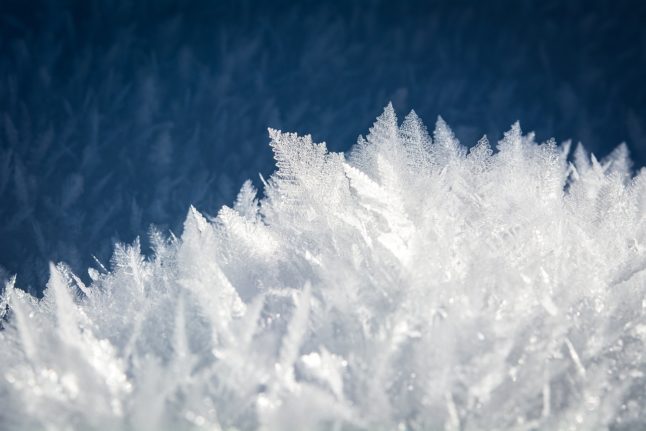The section of road impacted was from Amsteg in the canton of Uri to the entrance of the tunnel as heavy snow followed a wind storm that passed through the Alps a day earlier, the SDA news agency reported.
In the wake of the storm, snow fell in northern parts of Switzerland at higher elevations, including the Jura Mountains and the Alps, while heavy rain hit the canton of Ticino and the southern parts of Graubünden and Valais.
Roads through several mountain passes were closed, some of them for the season.
Snow shut the Oberalp pass between Andermatt in the canton of Uri and the canton of Graubünden until next spring.
Roads through the Gotthard, Klausen, Furka, Susten, Nufenen, Grand Saint Bernard and Grimsel passes have also closed.
Snow falling at levels as low as 600 metres on Wednesday is expected to continue north of the Alps at altitudes down to 500 metres, MeteoSwiss, the national weather office, reported.
The precipitation follows hurricane-force winds in the Swiss Alps on Tuesday, measured up to 186 kilometres an hour at Titlis, the mountain resort in the canton of Obwalden.
The winds forced the closure of various mountain lifts and caused scattered damage, largely to the roofs of buildings.
A 67-year-old man was seriously injured when a gust of wind blew him off the corrugated roof of a garden shed hut in Sevelen in the canton of Saint Gallen on Tuesday, cantonal police reported.
He fell two and a half metres to the ground and was transported by a Rega emergency services helicopter to hospital, police said.



 Please whitelist us to continue reading.
Please whitelist us to continue reading.
Member comments